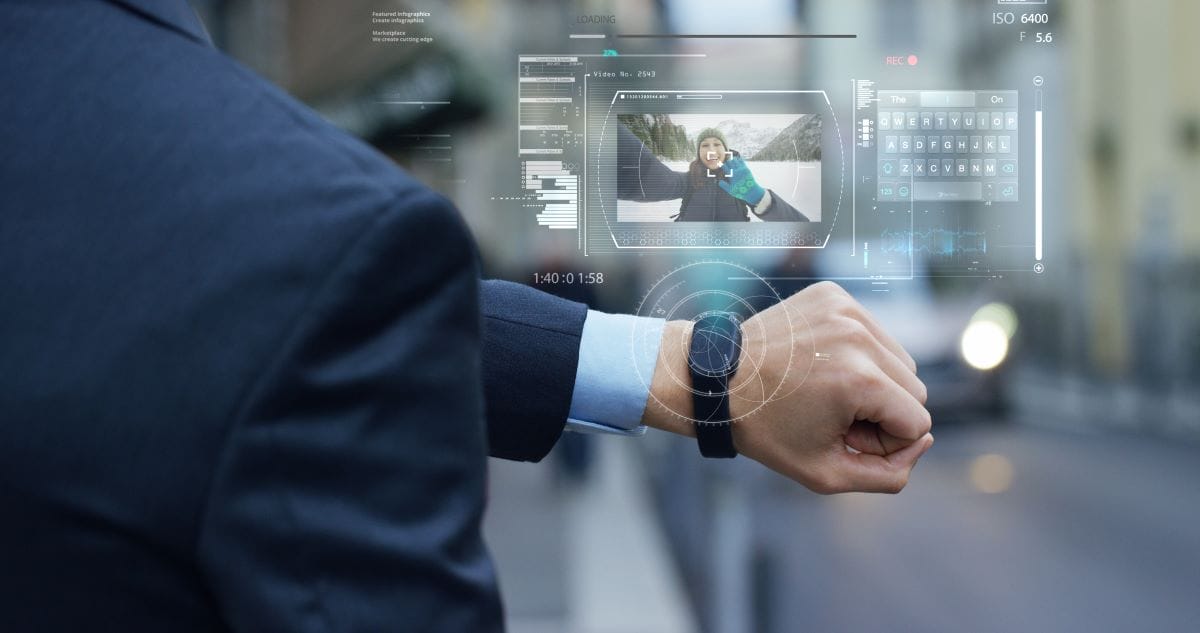Immersive technologies, which bridge the gap between virtual content and the physical world, are truly transformative. These dynamic tools create an enriched blend of reality, transforming personal and business experiences alike.
According to the findings of Meticulous Research, the global immersive technologies market is projected to reach $493.5 bn by 2030.
Further propelled by the emergence of the metaverse and Web 3.0, we can expect immersive technologies to become increasingly intertwined with our future daily lives and work.
Types of immersive technologies
Immersive technologies come in several forms, including but not limited to the following:
Virtual reality
Virtual reality (VR) engrosses users in a fully artificial digital environment. It submerges users completely into a simulated digital environment. Its applications across industries, notably in businesses, include areas such as product design, employee training, and remote collaboration.
By using VR, companies can dramatically increase efficiency and cut costs. Additionally, it allows for practical, hazard-free experimentation and real-time modifications.
A recent survey conducted by Market Research forecasts a bright future for VR in the Middle East and Africa. The VR market in the region is set to expand at a compound annual growth rate (CAGR) of 43.7 percent between the years 2022 and 2029.
Augmented reality
Next up is augmented reality (AR), an immersive technology that integrates digital information into a user’s physical environment. It functions as a bridge between the virtual and the real world, enabling real-time interactions with enhanced objects.
A recent study by Ipsos, in collaboration with the popular social media platform Snapchat, provides insights into AR’s growing popularity in the UAE. The study forecasts that by 2025, AR will have woven itself into the fabric of everyday life. Specifically, over 65 percent of the UAE’s population and nearly all social media app users in the region will become regular AR users.
Despite 94 percent of brands viewing AR primarily as a playful tool, consumers’ perspectives paint a slightly different picture. Less than half, or only 46 percent, agreed with brands’ perceptions. The study reveals that the leading motive for consumers’ AR usage is shopping, suggesting AR’s critical role in shaping the future of retail.
Read: Spheroid to launch AI avatars in Augmented Reality
Mixed reality
Furthermore, we find mixed reality (MR), a versatile facet of immersive technologies. As a hybrid offering, MR masterfully blends realities, creating a unique environment where physical and digital elements interact in real-time.
Leveraged across industries like manufacturing, healthcare, and education, MR paves the way for enriching, contextually immersive experiences.
RationalStat’s latest market report shows that the global mixed reality market, valued at $1.4 bn in 2023, is poised for further growth. Moreover, this market is expected to chart a CAGR of over 14 percent from 2023 to 2030.
360° Video
Meanwhile, 360° videos provide a real-world panoramic experience from a single point of view. Ideal for businesses in sectors such as real estate, tourism, and event planning, 360° videos can effectively present a complete spatial perspective.
The global 360° camera market projections demonstrate the growing recognition of this immersive technology. According to forecasts, the market is poised for substantial growth and is expected to expand at a CAGR of 23.78 percent from 2023 to 2029.

Immersive technology in different industries
Businesses across various industries are using immersive technologies to bring innovation, improve customer experiences, and upend traditional operational practices.
Entertainment
Immersive technologies are reshaping the entertainment industry. From VR-integrated gaming experiences that transport players into virtual realms to AR-enhanced live events, these technologies are revolutionizing the field.
Likewise, 360° video and MR concerts are creating global connections among music enthusiasts. Simply put, immersive technologies are providing unprecedented entertainment experiences, pushing the industry into a new era.
Education
Similarly, immersive technologies are redefining education in significant ways. As the traditional methods of teaching prove inadequate in this fast-paced digital age, virtual experiences are filling the gap.
Through this technology, students can embark on virtual field trips or explore intricate biological systems, bringing theoretical information to life. Even complex math problems become more comprehensible when illustrated in VR.
These tools encourage engagement as well as facilitate hands-on learning experiences for improved understanding and memory retention.
Healthcare
The healthcare sector stands as another example of an industry positively impacted by immersive technologies. VR has been particularly transformative, providing innovative solutions for both medical training and patient treatment.
Balancing theory and practice, medical students can now perform detailed virtual dissections and simulate surgeries, making education safer and more all-encompassing. On the treatment front, innovative uses of VR include pain management for burn victims and phobia therapy.
Through customization coupled with their immersive nature, these technologies yield promising results in patient care and rehabilitation.
E-commerce
E-commerce businesses have begun leveraging immersive technologies as a formidable way to bridge the gap between online shopping and the brick-and-mortar experience.
Virtual storefronts generated via VR and AR applications enable shoppers to virtually try before they buy, be it clothing, furniture, or cosmetics. This not only enhances user engagement but also shifts the decision-making dynamics by providing customers with a richer set of information.
As such, immersive technologies are proving instrumental in mitigating the challenges e-commerce platforms face in relation to product returns and customer retention.
Real estate
Lastly, the real estate industry has experienced a transformative impact with the advent of immersive technologies. Virtual tours offer prospective homebuyers and renters the flexibility to explore properties remotely, thereby amplifying convenience and time efficiency.
In addition, the technology allows potential buyers to visualize spaces better and make informed decisions. AR apps also enable users to preview renovations or layout changes. Hence, immersive technologies are also making property buying more customer-friendly.
For more stories on technology, click here.








